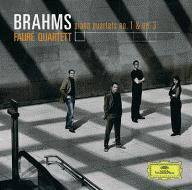Thomas Hampson Recreates the Beauty and Creativity that is American Song
Thomas Hampson stopped at Boulder Colorado as part of his “Song of America” tour. With Wolfram Rieger on piano, Mr Hampson performed over two hours of songs written by American composers in many respects celebrating the American spirit – what it is to be American. This was our chance to “see through the eyes of our poets and hear with the ears of our composers what it is like to live in America,” as Mr Hampson said just before the second half of the program. “We have been a phenomenally creative culture,” and his concert is an exploration on 250 years of this creativity represented in song.
The music presented is diverse starting with Francis Hopkinson and his “My Days Have been so wondrous free” written in 1759 through to a host of 20th century composers and songs including works by Copland, Ives and Bernstein. However, these are not songs you are probably familiar with; these are not the “tunes” by Berlin or Gershwin or Porter that pervade our American music culture. Rather these are songs that speak of the American spirit and ideals in a thought-provoking, artistic way.
Thomas Hampson has a rich, full voice that can easily batter the back of the house and yet, even in soft tender moments still seem to fill the hall with resonant beauty. During “Circus Band” by Charles Ives Hampson’s face was animated, telling a story beyond the music, creating for us a sense of who the “singer” is in the song. Then in “The Golden Willow Tree” a traditional song by Aaron Copland, the story song took on a number of different characters, each one easily distinguished from the others and ultimately showing us an immense range of expression befitting the music.
The second portion of the first half of the concert was devoted to songs dealing with war. It opened with “In Flanders Fields” by Charles Ives, a beautiful song protesting the entry of America into World War I. The piano was played with the top up which is amazing since Mr Hampson had no difficulty in being heard – except for some of the low sections of this song by Ives. Prior to this Thomas Hampson spoke to the audience briefly stating this new section would be performed out of order from the program to give more flow to the songs, finishing it with a piece written about the “letter to Mrs Bixby.” While Mr Hampson admits the myth surround the story of a woman who lost five sons to the Union cause is untrue, the story is a good one and the words and music were superbly performed – a marvelous end to a heart wrenching collection of American songs.
Throughout the program it struck me how rugged our American spirit is, and how much that very nature comes out in our songs. There is a bold nature to the music, a strong sense of adventure and of a people who are descendants of hearty stock. Thomas Hampson’s voice is perfectly suited to these rugged sensibilities, creating both the bold willingness to dare the untried and the tenderness for what we left behind.
In the program Mr Hampson writes, “…those who hear us will experience the best of what freedom of thought and purpose can achieve in the creation of great art.” The third section of the program was devoted to the quest as portrayed in American song. These were often dark songs, songs of loneliness, wandering or longing. From song to song Thomas Hampson’s voice seemed to just get stronger, more emotional and his demeanor more animated as if desperate to express to us how important each and every word is for us to hear. He asked for the audience to not applaud between songs to give full weight to the collection – the power of the applause at the end of these six songs was proof his message was heard.
The final collection was more light hearted and in some respects more avant-garde in terms of music. The final two pieces were story songs and in many respects the most powerful of the night. Yet Hampson sang as if this was the start of his program. The dynamics were full and varied; the range was both high and low and emotionally, there were moments of jaunty quickstep and slow drawn-out anguish. This after nearly two hours on stage with just his voice and the piano.
After the concert we were treated to a series of encores. I won’t spoil the fun for future audiences, but suffice it to say Thomas Hampson is a consummate performer, singing three more pieces, each demanding and yet perhaps more familiar than anything he sang in the body of program. During the extremely appreciative applause, Mr Hampson also gave his pianist Wolfram Rieger a moment of solo acclaim, which was well deserved. Throughout the program Mr Rieger brought to life the nature of the music from the comic to the tragic, often playing the foil for Mr Hampson’s performance.
The program was not only entertaining, but educational – creating awareness in the beauty that is American Song. If our culture is creative then Thomas Hampson brings to the concert hall the best of that creativity.
A big thank you goes out to the sponsors of this event CU Presents Artist Series.

Comments